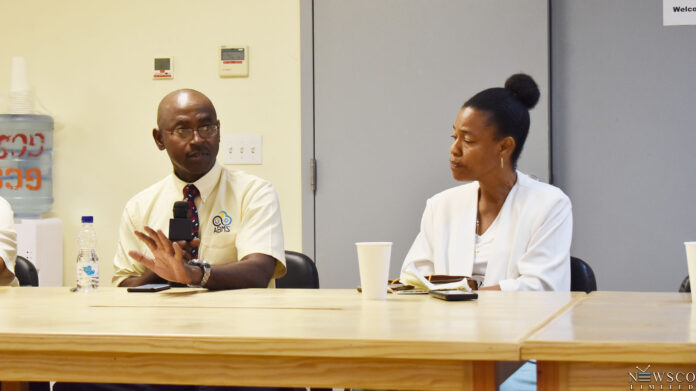
By Samantha Simon
[email protected]
The Antigua and Barbuda Meteorological Service is looking to expand its capabilities and human resources to better serve the country in the face of climate change.
Together with the National Office of Disaster Services (NODS), the Met Service forms the backbone of the nation’s disaster risk reduction mechanism, offering nearly 90 percent of the essential services, according to Met Service Director Dale Destin.
“When you look at the four pillars of early warning, they are primarily shared between the NODS and the Met Service,” he explained.
Destin said the Met Service needs specialists in various fields to meet its growing demands and projects.
“We need persons skilled in agro-meteorology, we need persons skilled in oceanography, we need persons in project management, because there are lots of projects that are coming through that we’re not able to pick up because we don’t have the in-house resources to deal with them,” he explained.
“We also need communication specialists, which we don’t have, which will do well for us, especially in articulating our message to the public.”
One exciting development is the Met Service’s plan to hire a meteorologist who is a native Spanish speaker.
“Early warning for all means early warning for all. We know that we have a significant Spanish population. How do they get their warnings? How do they know when something is happening?” Destin pointed out.
As the Met Service grows, Destin believes it’s time to start thinking about a purpose-built meteorological facility.
“We have outgrown the space that we are in, and so we need to be starting to look at the whole notion of purpose-built meteorological services to be able to house all these various specialties, equipment and so on,” he said.
“The expansion is crucial as the Met Service aims to become a centre of excellence in line with the United Nations’ declaration of ‘early warning for all’.
“It is going to require much more, especially in human resources, equipment and so on. We have to start to think about how we’re going to build out the service to become a centre of excellence if we are to properly adapt to the fact that the climate is changing.
“Every dollar invested in disaster risk reduction is an investment that has at least a 10-fold return. When you think about investment, there’s no reason why you should not want to invest in disaster risk reduction,” Destin emphasised.

